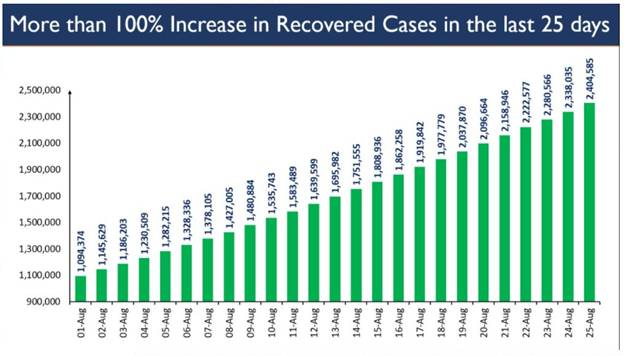An English Nursery Rhyme teaches kids about the folly of a single-minded pursuit of one goal. A single-minded pursuit that is ultimately damaging. The nursery rhyme tells of an old lady who accidently swallows a fly, but instead of taking a balanced approach to the problem, she swallows a spider to catch the fly, then a bird to catch the spider, a cat, a dog etc. She ultimately dies.
Kids taught this rhyme know that choices need to be made in life, but that you need to assess the wellbeing of the solutions and choices made.
The NZ Treasury developed a strategy for evaluating choices as part of the Budget process – a Wellbeing Budget. It weighs up and tracks all the costs and benefits to human welfare for each choice it makes – for example, on roads, healthcare and education.
Unfortunately the Wellbeing Budget failed to change the substance of this Government’s budgeting, but it could enhance our response to COVID, and the way that we choose to manage the risk. Low risk; high benefit choices We should choose low risk activities that have a high benefit on the Wellbeing of Kiwis. For example, students and their life-defining exams, the mental health of small business owners who can safely trade, and non-COVID healthcare like missed cancer check-ups.
A L3 Lockdown in Auckland costs $440 million per week. Sixteen days is $1 billion. That is Pharmac’s entire budget for a year – for a two-week lockdown in one city.
Risk management and continuous improvement
Part of the reason we find ourselves back here is for 100 days we looked down on the worst countries, and did not aspire to best countries.
Victoria, Australia is the state that our Coalition uses to scare us. Have we copied the eight other States and Territories doing well? They have lighter lockdowns, and now let international students back.
Why did Taiwan achieve only seven deaths amongst twice as many people … without lockdowns? On COVID deaths and every other measure, their approach is superior. Their economy is forecast to grow this year, life carries on for students, non-COVID patients, and businesspeople.
Five important lessons from Taiwan
One, a multi-disciplinary, public and private, taskforce with responsibility for our national strategy is required. An agency with scope, balanced incentives and dexterity – like Taiwan’s Central Epidemic Command Centre.
Two, recognise the role of Government as a referee, not a player. While the Government was busy operating isolation facilities, the Government forgot to check on itself.
The Government should be setting the rules for safety rather than trying to do everything itself. In Taiwan, you can isolate at an Airbnb, but you will be strictly and electronically monitored by the authorities.
Three, recognise risk varies, and manage the risks. Countries: Treat different countries (and Australian States) with different levels of caution. People: Treat a rail engineer coming to work on the City Rail Link differently to a deported gang member. Businesses: if you can operate safely do it.
Four, adopt technology. Taiwan uses GPS locatable cell phones to track those in isolation. Kiwi solutions are being rolled out internationally before our Government has even phoned them! New faster tests, and practical protective treatments, are not adopted. Managing risks better with technology accelerates tracing, minimises damage and avoids expensive debilitating lockdowns with finish line goal posts regularly moving into the future.
Five, honest reflection. We squandered 102 days on indulgence, we cannot afford to repeat that mistake. These five lessons enable Kiwis to operate and be safe from COVID. Will New Zealand adopt a Wellbeing Approach to fighting COVID, or will we swallow the futile spider?
– by ACT’s candidate for Mt Roskill, Chris Johnston, who has outlined above, what principles and policies ACT stands for. Chris is a Project Manager who was born in Whanganui and has lived around Mt Roskill and Dominion Road for eight years with his wife and children.




